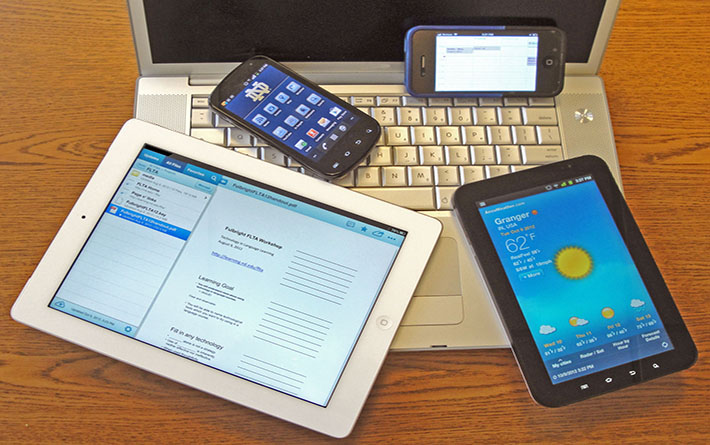
Online Exclusive: Laying the Groundwork for BYOD Security
As the war over mobile-device market share wages on–especially with the launch of several new phones and tablets into the market–we can expect a continued rise of security issues in the workplace.
- By Jeff Pederson
- Jun 14, 2013

Gartner predicts that by 2017, half of employers will require employees to supply their own device for work. With the number of personal devices showing up in the workplace expected to increase, bring your own device (BYOD) to work is certainly a security issue that companies of all sizes are starting to take seriously. However, for most businesses, simply putting a BYOD policy in place is not sufficient. Communication with employees on BYOD policies is critical. Companies need to identify whose job it is to communicate with employees, and make sure that employees know who to go to when something does happen and the repercussions of a lost or stolen device.
For example, when an employee uses a personal phone or tablet for work, both their personal information and corporate information are stored on the device. While the employee may be able to distinguish between personal and business information, the security team whose policy it is to remotely wipe all data from a phone or tablet that goes missing cannot make such a distinction. As such, an employee stands to lose not only the business information stored, but also all of their personal phone numbers, images and text messages. In this situation, it is important employees know what to expect so that they can be prepared by backing up their personal data regularly.
IT security at many companies is already laying out policies to address potential issues that may arise when company data and personal devices mix. Such policies include:
Backup and compliance: According to Fulbright’s 9th Annual Litigation Trends Survey Report, the number of regulatory investigations has reached a five-year high, making data retention for the purpose of compliance a top priority for businesses. Regardless of whether a personal device or company device is used, it’s the company data that is the critical issue. Once company data is involved, compliance requirements apply. But, is it the employees' responsibility to save their own data at specific intervals, or do the company's IT specialists take care of that? What tool is used to conduct the backup, who makes it available and who monitors compliance?
Data loss: Memory on mobile devices is easily damaged, so what if the data is important and hasn’t been backed up? A professional expert may be able to help, but who has to arrange for this and who will foot the bill–the company or the employee? Many do not realize that it is not possible to distinguish between company and private data during data recovery process. When a data recovery is performed, data will simply be restored. Often, the file names can no longer be read, so all files have to be opened and checked in order to disentangle private and company data.
Loss of device: When a device is lost or stolen, two issues come to mind: who will replace it and is there an obligation to inform the employer. Does the company have rules in place for how soon it must be informed about the loss? Does the company intend to take quick action, such as remotely blocking access or deleting data?
Remote deletion: Before a company agrees to allow the use of personal devices, it may want to consider requiring employees to install an application on their device that allows data to be deleted remotely in case of loss or theft. Many people do not realize that the deletion is not specific to company data, but affects personal data as well.
End of the employment contract: Most people change employers sooner or later, making the ongoing protection of confidential information post-termination critical for data security. What happens to the company data on the private device in that case? Who checks that it has been deleted? Will care be taken to ensure that private data is not lost during the employee exiting process?
As precautions, companies should consider encryption to prevent unauthorized access to information. In addition, the emergence of business-developed apps and cloud-type solutions can be used to ensure that business information is only accessed through an employee-owned device, but never stored on it. As companies embrace BYOD, it is important to remember that creating or amending policies is only the first step. Effectively communicating data security and retention implications ensures those partaking in the program are in compliance with those policies, understand the implications of leveraging their personal device for work and know what to do when loss or theft occurs.
For more information and insight from Kroll Ontrack’s data recovery experts, check out The Data Recovery Blog.